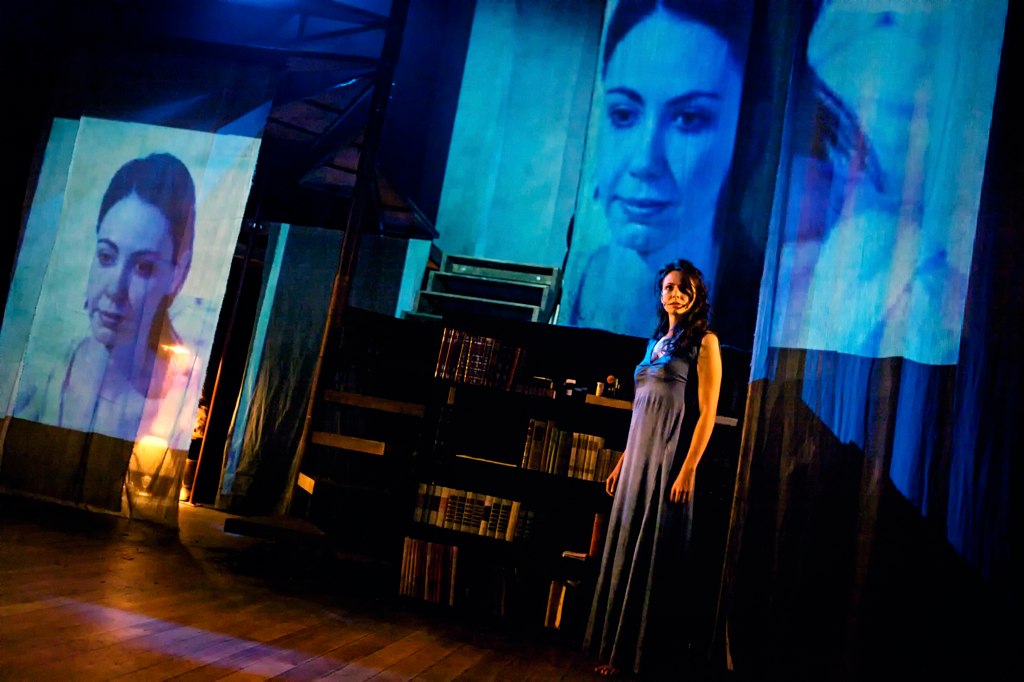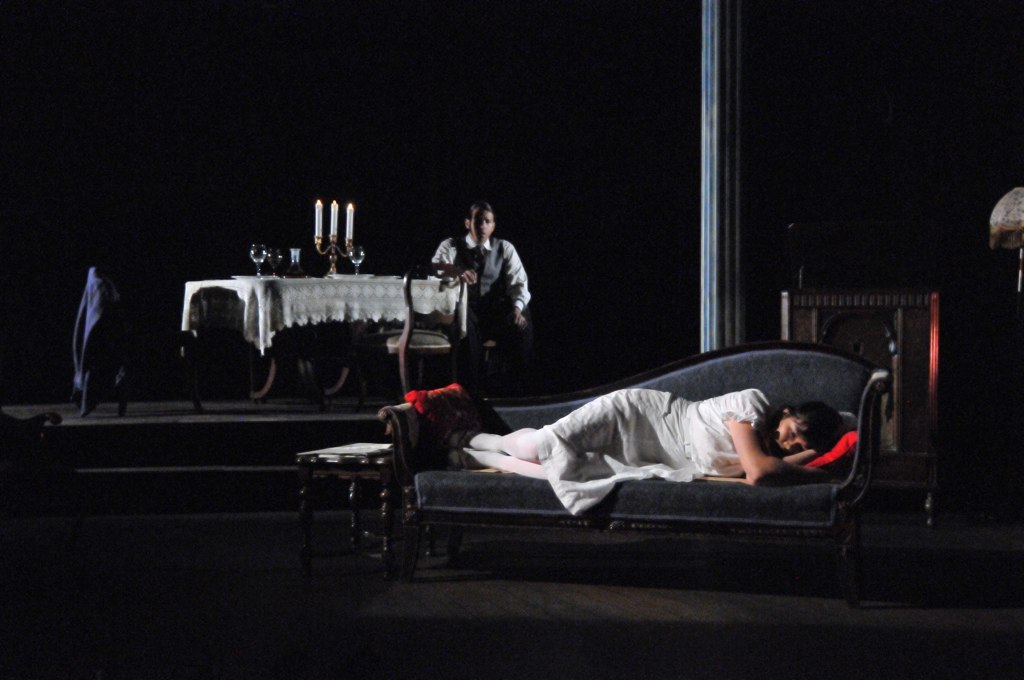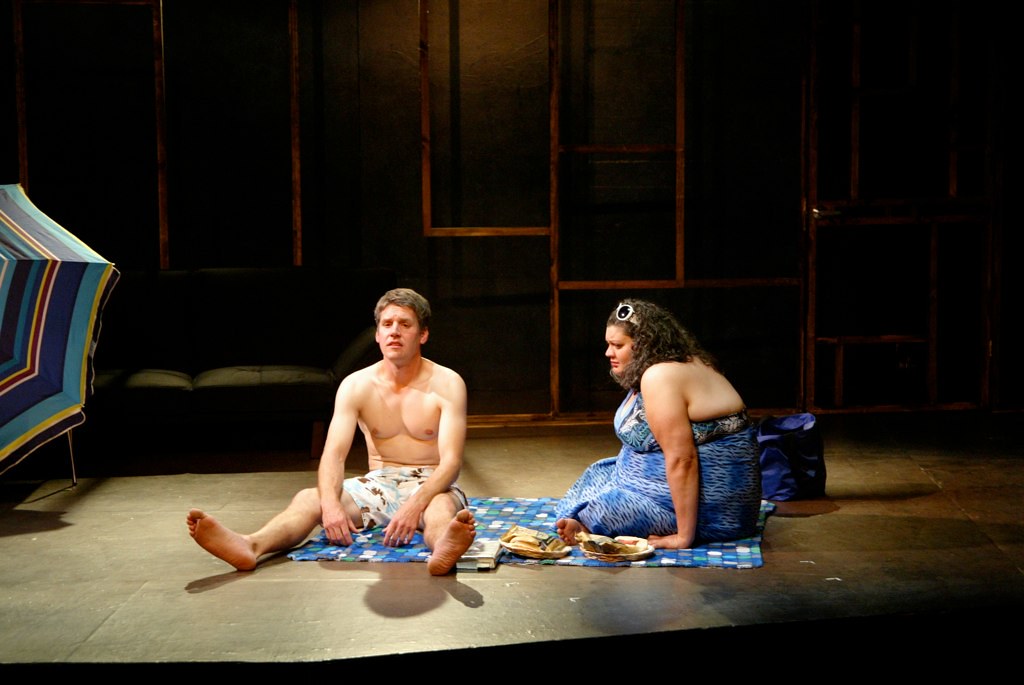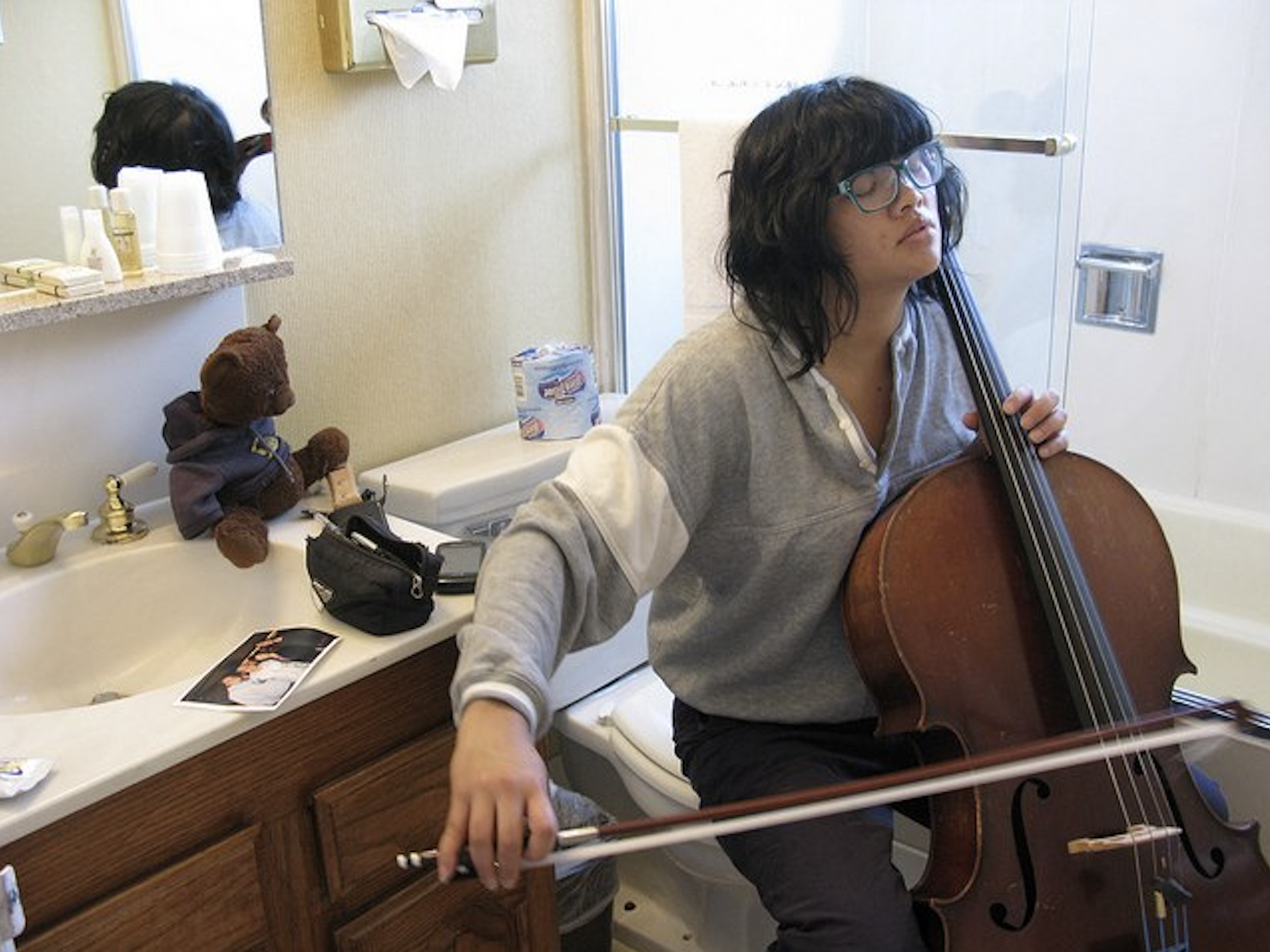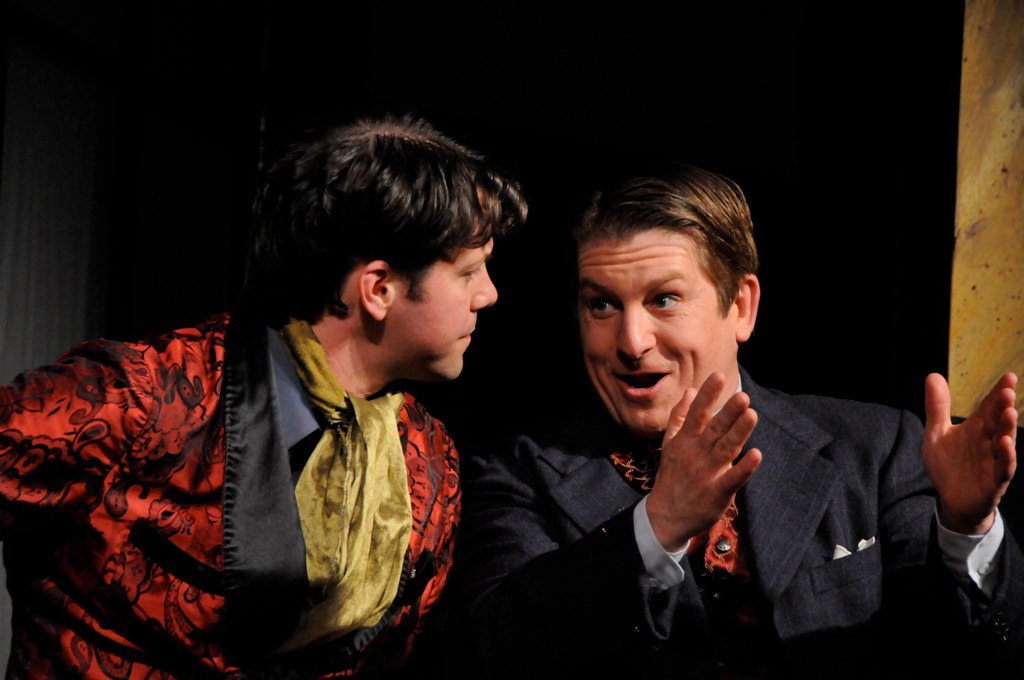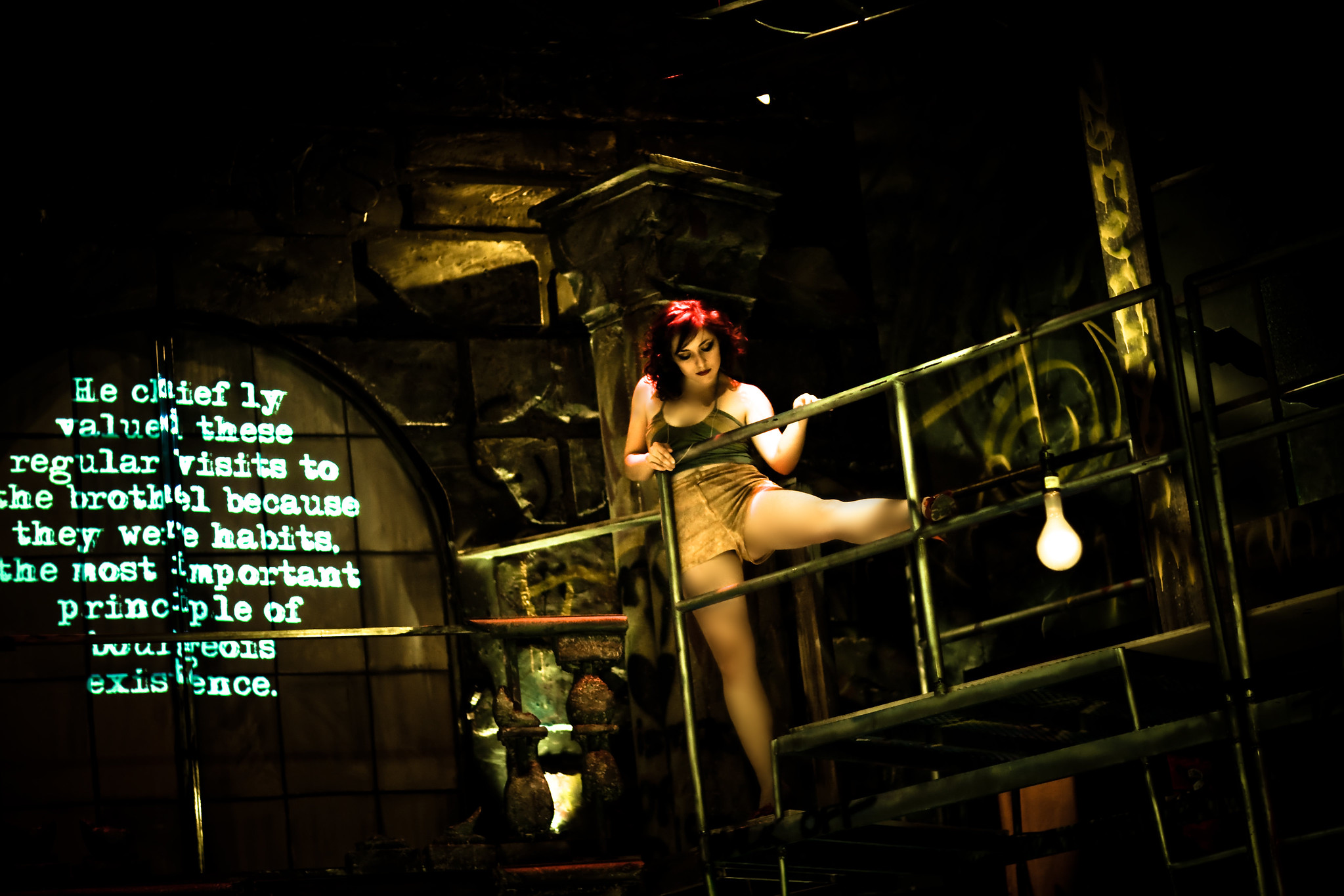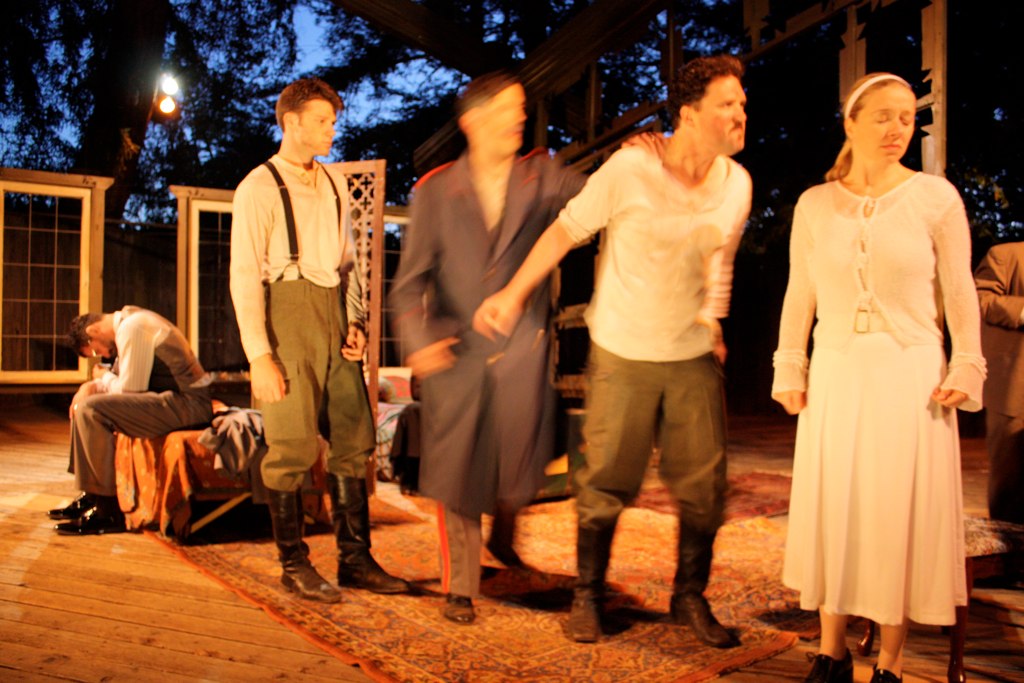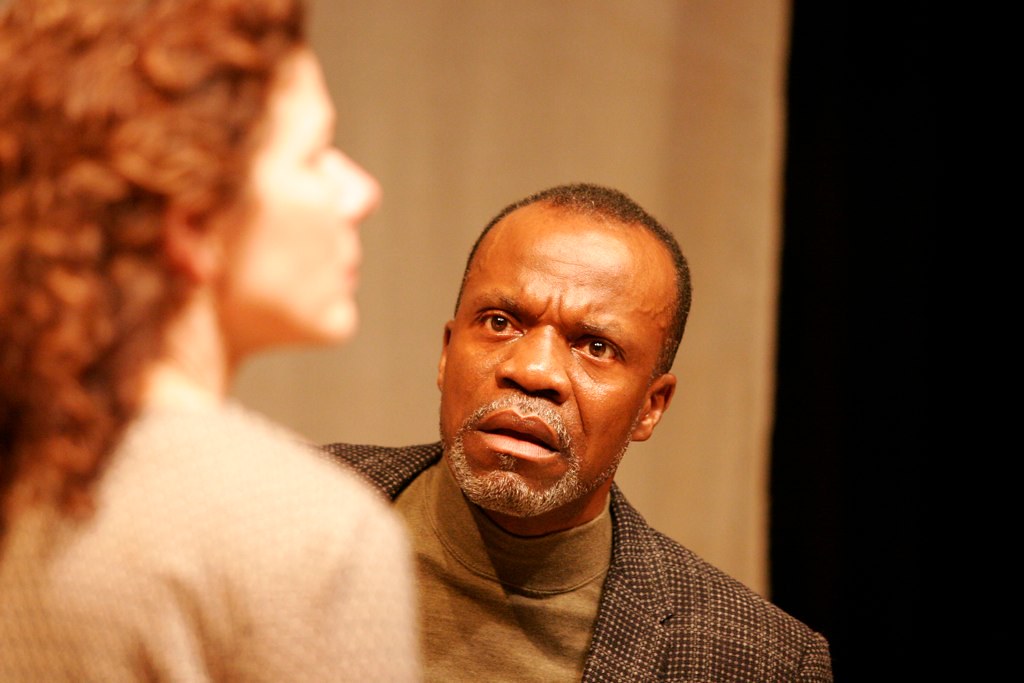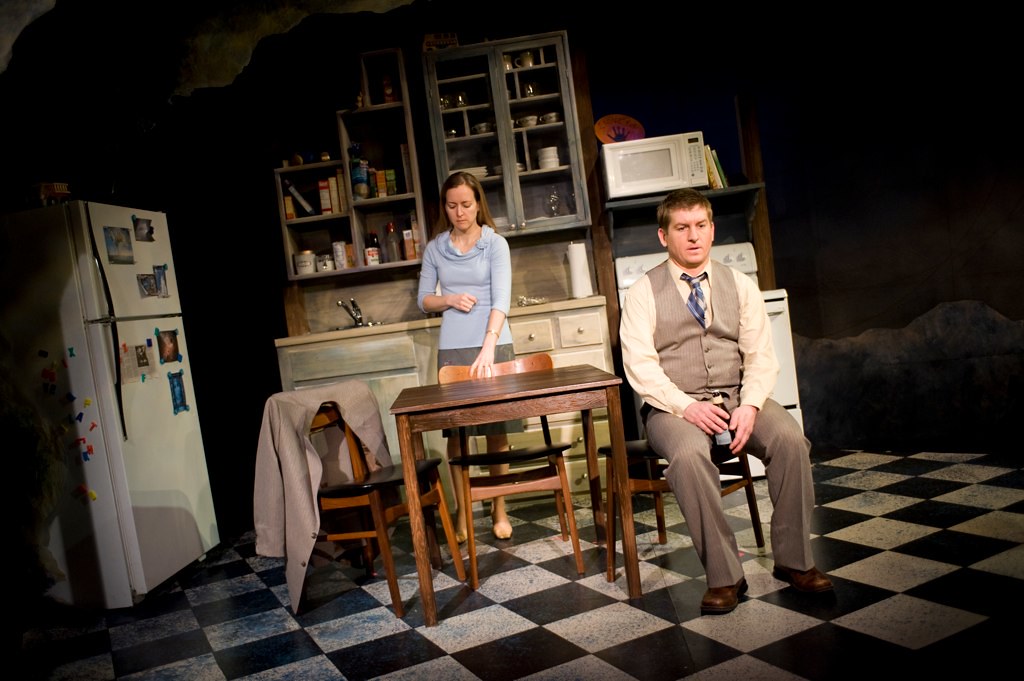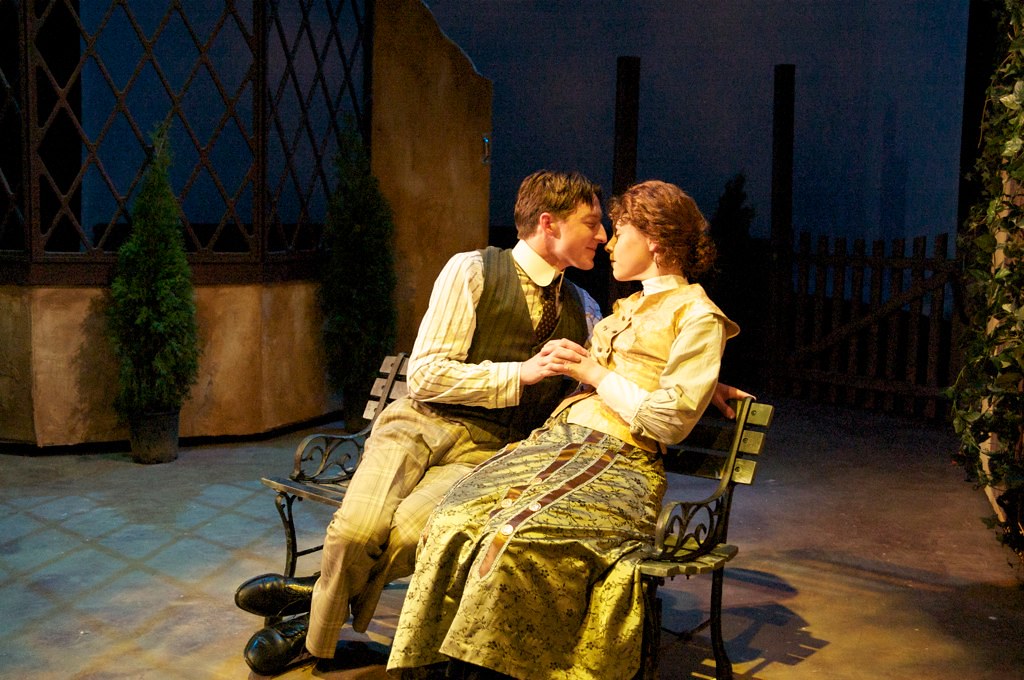Written by Bertolt Brecht with Music by Kurt Weill
Directed by Susannah Martin
Musical Direction by David Möschler
Photos by Jessica Palipoli
Presented by Shotgun Players
December 3, 2009 – January 31, 2010
Press
SAN FRANCISCO CHRONICLE “A half-decent ‘Threepenny’ is a gift at any time, and Susannah Martin’s staging of the 1928 Brecht-Weill masterpiece is better than that…Nina Ball’s set is the savaged, wastepaper-covered interior of a once grand bank. Martin makes it work equally well for every aspect of Brecht’s cross-section of capitalism…this ‘Threepenny’ is not to be missed.” – Robert Hurwitt
EAST BAY EXPRESS “In Martin’s version of the play — presented in collaboration with Shotgun Players — she stays true to the original script and concept, but reformats it for a modern audience. With the help of a talented cast and a couple of snide references to the current banking crisis, she manages to pull it off.” – Rachel Swan
SAN FRANCISCO BAY TIMES “Who is the greater criminal? The man who robs a bank, or the man who founds one?” asks the timeless 1928 Brecht/Weill epic-theatre-piece, The Threepenny Opera. And Shotgun Players’ must-see, darkly-brilliant production, staged with raw, seductive power by Susannah Martin, answers the question….Where others shoehorn in concepts based on trend, Martin slyly slides in her chosen time-period and punk aesthetic with a custom fit that’s as flattering as costumer Mark Koss’s period and character-appropriate garments. This production of The Threepenny Opera is worth every cent, and a whole lot more! It’s simply one of the best theatre productions of the year.” – Mike Ward
MY CULTURAL LANDSCAPE “Susannah Martin’s staging kept anger and irony in full force throughout the evening,,, Finding a way to make a show that was edgy in 1928 relevant to an audience in 2009 (especially after 80+ years of societal change and the globalization of financial markets) is a difficult challenge. Martin and her creative team took the bull by the horns and wrestled it to the ground quite nicely.” – George Heymont
Director’s Note
When Patrick Dooley and I began talking about this show a year ago, one of the first questions we asked ourselves was: What does it mean to do this play now? We are 21st Century Americans. Where do we go after decades of grappling with Brecht’s ideas? The catchwords about Brecht and Brechtian acting don’t mean the same thing to us now. Even Brecht’s own theories on certain totemic terms (alienation, gestus, epic theatre) changed throughout his life and were highly influenced by whatever – and whomever – he was working with at the time. How do we fully investigate these ideas and invest in them in a way that is relevant to the culture and the world that we live in now?
How do we tell the story and embrace all that is odd and contradictory about this play’s structure and characters? We all know the music and songs are inventive, catchy, and fun. But the core ideas of the show are contained in these numbers. The plot is all in the script. The story, though, and the ideas that make it tick, are in the songs. It’s easy to get lost in the duality of the play. It’s funny! No, it’s dark and scary! No, it’s about big political ideas! No, it’s a musical about a dapper guy! It’s a play about beggars – about poverty – and yet the ones we meet, under Peachum’s reign, are the wiliest Capitalists. It’s a play about a rapist and a sadist. But he compels us. It’s dark and scary and yet you have to laugh.
The notes that follow are a brief illustration of where I went over the last 6 months as I grappled with these questions.
I think about historicization and Brecht’s credo that we cannot do plays set in our own time. We need the necessary distance of another period in order to understand our own.
I dig into both the cultural upheavals of Brecht’s Berlin in the 20’s and America in the 70’s. I keep going back to this period. The American economy was depressed. People were reacting to similar issues then and now. The revolution of the 60’s felt like a total bust in the 70’s. People were left picking up the pieces and feeling scammed. Lots of good ideas had paved the way to self-indulgence with very little changing for minorities or the poor. The bitterness that people felt about that led the way to a takeover by the right. This scenario is similar to Berlin in the 20’s and 30’s. In reaction to the social upheaval after World War I, Brecht and his contemporaries were interested in taking apart assumed structures and hierarchies in order to question and protest the faulty system that had been left behind. Was there a contemporary movement that did the same thing?
I keep thinking about Punk. Joanie McBrien hands me the book, Panic Attack: Art in the Punk Years. I’m reading Brecht’s theories at the same time as I read the essays in this book.
“You have to kill your neighbor to survive/It’s selfishness that keeps a man alive…” – Second THREEPENNY Finale
“You’ve got nothing. There is nothing. You’ve got to fight to get out, you’ve got to fight to survive, you’ve got to fight to live.” – Stephen Willats, Every Day and Every Night, 1984
The artists of this era picked up where Brecht left off. The artists of the early punk movement were rebelling against the same failed ideas as the artists of Weimar Germany. Punk was a way of expressing anger and taking back power.
You can’t tell me what to do or who to be.
You can’t tell me
Where
Or how
Or when I can make art.
I take it back,
I take it apart,
And make it MINE.
Punk. The philosophies and motivations behind the movement, not mohawks, biker jackets, and safety pins: not the commodified image that Punk became. Being “punk” is more about recognizing the weaknesses in the rules that were written for you and deciding to rebel against that.
The original Punk artists, writers, musicians, and poets were Brechtian actors. They turned poverty into glorious art and the passion they felt in ripping something to shreds and putting it back together remains infectious and incredibly inspiring. THE THREEPENNY OPERA lives in this meeting place between honoring the form that came before and the desire to take it apart. It is rife with broken expectation, contrast, and contradiction. That disjointedness is at the heart of what Brecht termed the alienation effect but it is also the beating heart that drove the punk movement.
Cast
Ensemble / Andy Alabran
Ensemble / El Beh
Ensemble / Madeline H.D. Brown
Ensemble / Daniel Duque-Estrada
Mrs. Peachum / Bekka Fink
Mr. Peachum / Dave Garrett
Ensemble / Casi Maggio
Lucy / Rebecca Pingree
Ensemble / Josh Pollock
Ensemble / Eleanor Mason Reinholdt
Polly / Kelsey Venter*
Ensemble / Christopher W. White
Jenny / Beth Wilmurt
Tiger Brown / Danny Wolohan*
Macheath / Jeff Wood
*Member of AEA
Musicans
Nick Antipa / trumpet
Dave DiGiacomo / piano, organ
Adrian Gormley / alto sax, clarinet
Eric Marshall / double bass
David Möschler / banjo, guitar, accordion
Josh Pollock / percussion
Sean Seuss / tenor sax, clarinet
Crew
Founding Artistic Director / Patrick Dooley
Assistant Director / Ben Prusiner
Assistant Stage Manager / Jen Stukey
Carpenter / Andy Fitts
Choreographer / Erika Chong Shuch
Costume Design / Mark Koss
House Tech / Heather Gallagher
Lighting Design / Allen Willner
Projection Design / Chris Paulina
Properties + Set Dressing / Chris Kristant
Set Design / Nina Ball
Stage Manager / Leah McKibbin
Technical Director / Adam Puglielli
